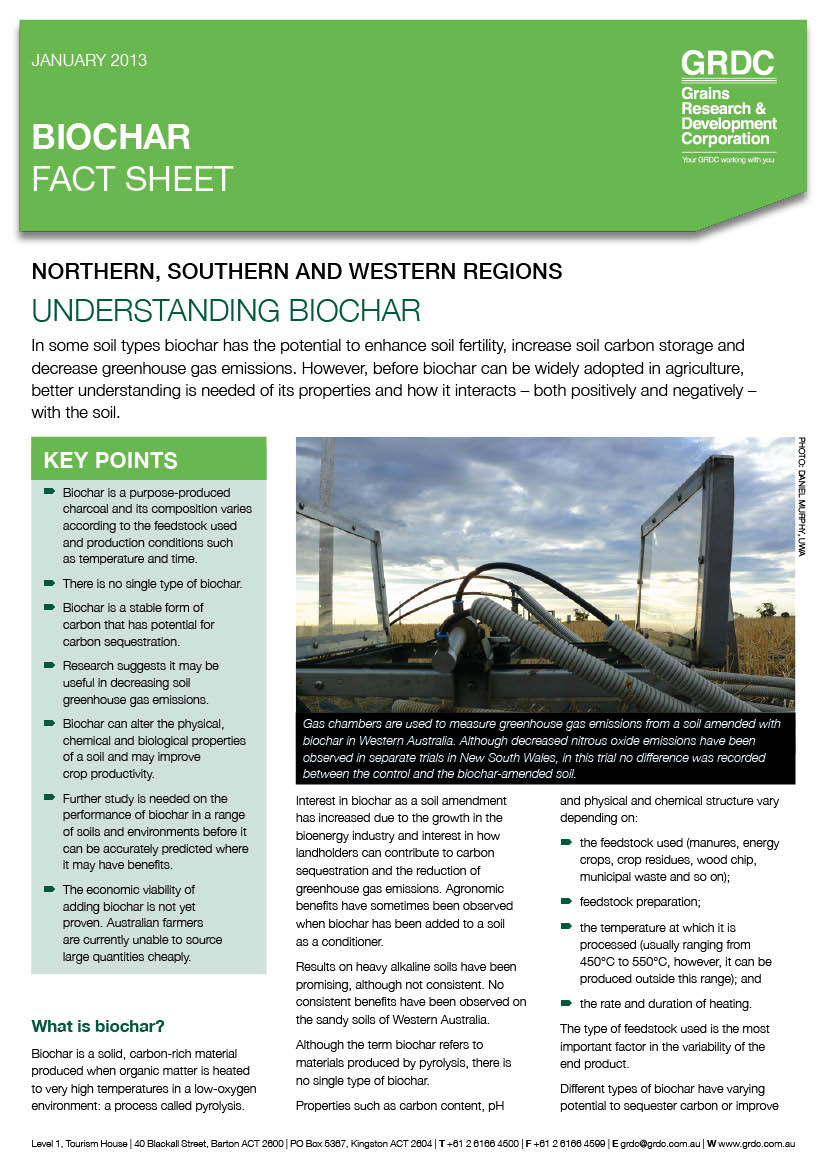Biochar Factsheet
Biochar Factsheet
Published: 18 Jan 2013
In some soil types biochar has the potential to enhance soil fertility, increase soil carbon storage and decrease greenhouse gas emissions. However, before biochar can be widely adopted in agriculture, better understanding is needed of its properties and how it interacts – both positively and negatively – with the soil.
Key Points
- Biochar is a purpose-produced charcoal and its composition varies according to the feedstock used and production conditions such as temperature and time.
- There is no single type of biochar. Biochar is a stable form of carbon that has potential for carbon sequestration.
- Research suggests it may be useful in decreasing soil greenhouse gas emissions. Biochar can alter the physical, chemical and biological properties of a soil and may improve crop productivity.
- Further study is needed on the performance of biochar in a range of soils and environments before it can be accurately predicted where it may have benefits.
- The economic viability of adding biochar is not yet proven. Australian farmers are currently unable to source large quantities cheaply.
Region: National

